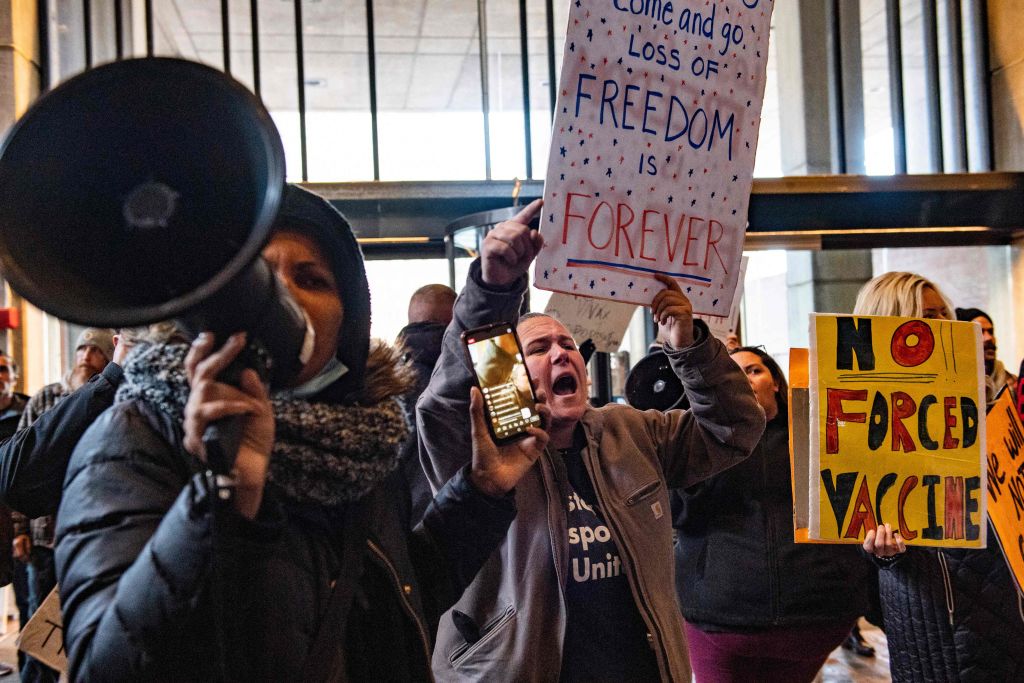One list being created by a small agency is stirring massive fears that information about religion will be misused by the federal government.
A notice posted Tuesday in the Federal Register by the Pretrial Services Agency for the District of Columbia said that it intends to create an “Employee Religious Exception Request Information System.”
“This system of records maintains personal religious information collected in response to religious accommodation requests for religious exception from the federally mandated vaccination requirement in the context of a public health emergency or similar health and safety incident, such as a pandemic, epidemic, natural disaster or national or regional emergency; and/or any other lawful collection of employee information or data that is necessary to ensure a safe and healthy environment for individuals who are occupying PSA facilities, attending PSA-sponsored events, or otherwise engaged in official business on behalf of the Agency,” the notice read.
“The system of records will assist the Agency in the collection, storing, dissemination, and disposal of employee religious exemption request information collected and maintained by the Agency, as referenced above,” it said.
Federal Register Post by The Western Journal
Given the vast, and what may seem pointless, amounts of information routinely collected by everyone from Facebook to the feds, the bureaucratic babble focused on a few employees of a small agency might not sound alarming.
But alarm is exactly what Americans should be feeling, argues a commentary Tuesday in The Daily Signal by Sarah Parshall Perry and GianCarlo Canaparo, legal fellows in the Edwin Meese III Center for Legal and Judicial Studies at the Heritage Foundation.
They wrote that the PSA’s list “will likely serve as a model for a whole-of-government push to assemble lists of Americans who object on religious grounds to a COVID-19 vaccine.”
Perry and Canaparo noted that the agency did not say why a list was needed or what will be done once this list is compiled.
But they did not hold back their suspicions about the motivations of President Joe Biden and his administration.
“And neither does the announcement explain why the Biden administration chose to test this policy in an agency with a majority-black staff, who are both more religious and less vaccinated than other groups. So much for the president’s commitment to ‘racial equity,'” the commentary said.
“What’s really going on with this announcement at this tiny agency? Likely, the Biden administration is using it to stealth test a policy it intends to roll out across the whole government,” Perry and Canaparo wrote.
They argued that “had Biden announced, for example, that the Department of Labor intended to adopt this policy, it would be big news. The Federal Register where announcements like this are made would be flooded with comments that the department would have to address.
“That would, of course, delay the policy’s rollout. With the Pretrial Services Agency, Biden likely expected that the policy would land quickly and without a splash.”
?
“A tiny administrative agency in the District of Columbia announced a new policy Tuesday that will likely serve as a model for a whole-of-government push to assemble lists of Americans who object on religious grounds to a COVID-19 vaccine.” https://t.co/nyNCtffBVm
— Ted Cruz (@tedcruz) January 12, 2022
“Biden may not be winning points for transparency, but he’s doing his best to win first place in subjecting Americans with sincerely held religious beliefs to differential treatment,” they wrote, citing the Biden administration’s hostility to religion in the fact that the Department of Defense has not granted any religious exemptions to the coronavirus vaccine.
“While employers, employment agencies, or unions with 100 employees or more are prohibited under Title VII of the Civil Rights Act of 1964 from engaging in disparate treatment and from maintaining policies or practices that result in unjustified disparate impact based on religion, this administration doesn’t seem to have gotten the memo,” Perry and Canaparo said.
“That, at bottom, is what this policy is about,” they said.
This article appeared originally on The Western Journal.
























